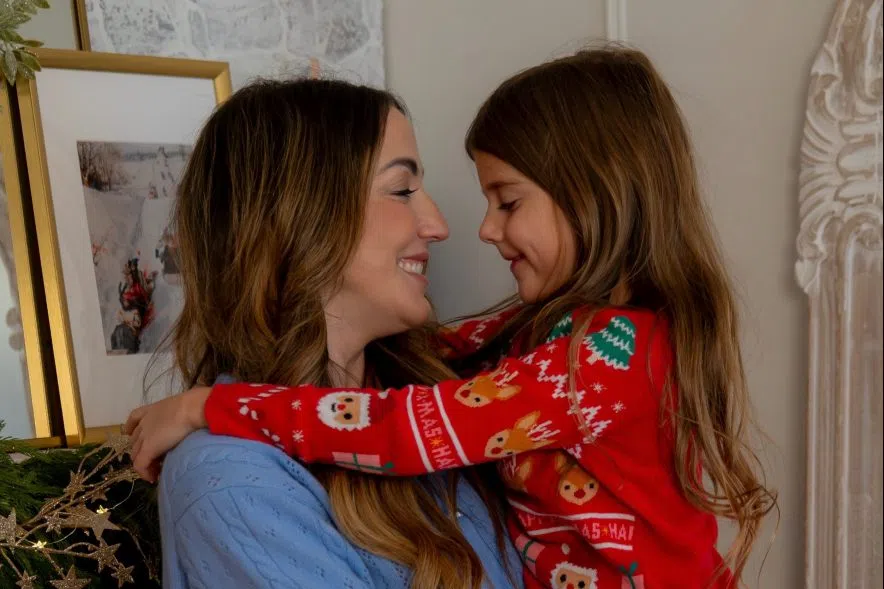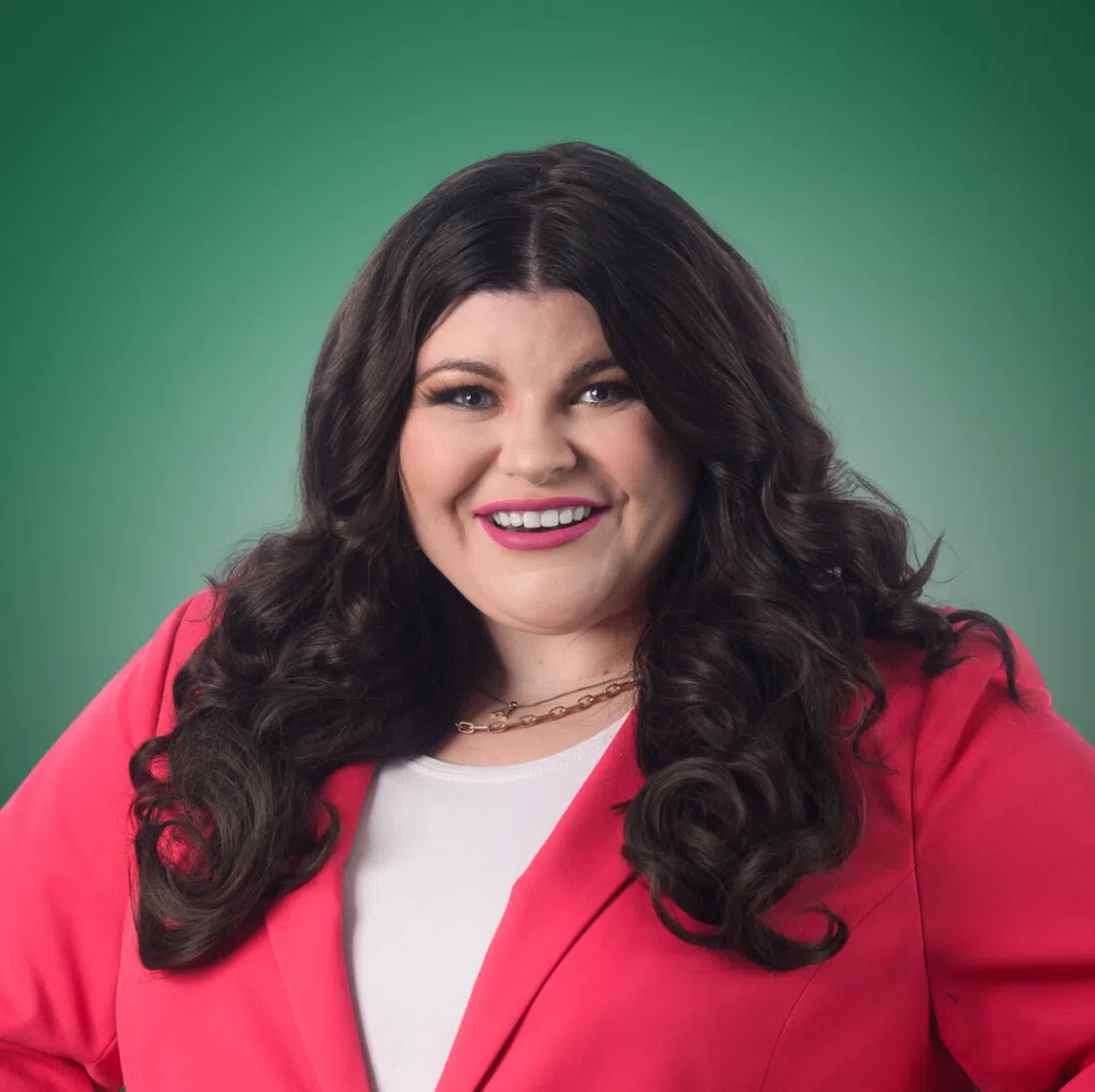The sounds of laughter and chaos fill the air as Meredith Rhinas, surrounded by her lively children, moves from one task to the next.
It’s just another busy day in her home – kids running around, asking questions, needing attention, and sharing the stories of their day. But for Rhinas, these simple moments of joy and connection feel like a miracle.
Six years ago, the mother of four was lying in a hospital bed, recovering from open-heart surgery after her condition had deteriorated to the point of heart failure. Now, as she looks at the life she’s built, she said it’s hard to believe she once feared she wouldn’t survive to raise her children.
February is Heart Month, a time to raise awareness about heart health.
For Rhinas, it’s an opportunity to reflect on the fragility of life and the power of love.
Listen to Rhinas on Behind the Headlines:
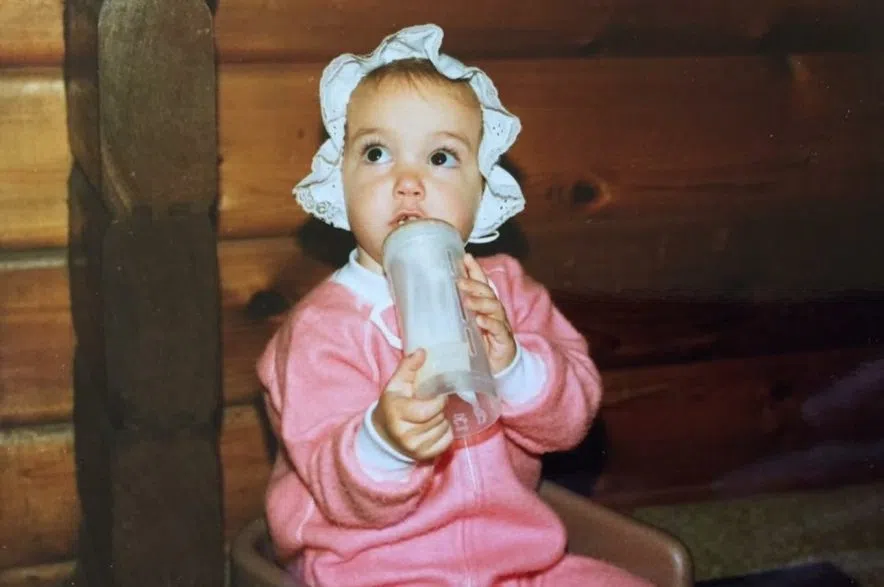
Meredith Rhinas was 18 months old when she was diagnosed with bicuspid aortic stenosis after a series of fainting spells. (Submitted)
Rhinas’ heart journey began long before her open-heart surgery. Diagnosed with bicuspid aortic stenosis as an infant, she learned early on that her heart was different.
“Bicuspid aortic stenosis is basically a condition where your aortic valve, which should normally have three flaps that sort of keep the valve opening and closing really nicely and blood pumping through your body at a really good rate, only has two instead,” she explained.
As a child, the diagnosis had a profound impact on Rhinas’ life.
“I had to really monitor my physical activity. There were things I couldn’t do. I had physical limitations and restrictions on playing sports and anything that would sort of over exert myself and put too much burden on my heart.”
At the age of 10, she underwent an angioplasty, a procedure that temporarily improved her quality of life, but doctors made it clear that it was only a stopgap measure. She was told upfront that one day, she would need open-heart surgery.
Though her condition cast a shadow over her childhood, Rhinas said she was able to lead a fairly normal life as an adult. She became a mother to three children. Some precautions had to be taken during her pregnancies and deliveries, but for the most part there were no concerns.
Read more:
- Tackling low literacy rates: Sask. Roughrider inspires kids to read
- Dill pickle donuts, semi drive-thru make Delisle bakery stand out
- King of Kovbasa: Martensville butcher crowned top Sask. sausage maker
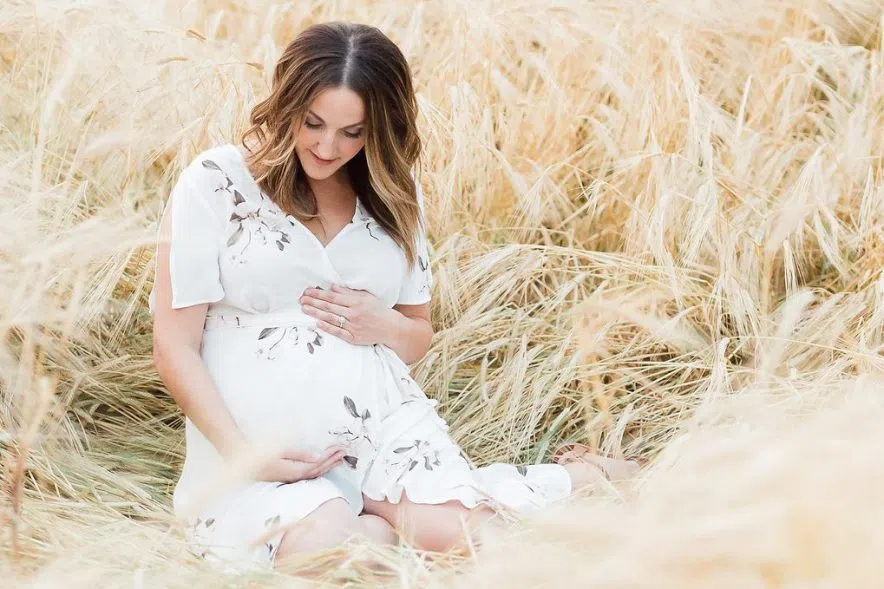
Exhaustion, chest pains and swelling of her hands and feet — symptoms Rhinas had chalked up to side effects of her fourth pregnancy — were, in her case, the warning signs of heart failure due to a congenital heart defect. (Submitted)
It wasn’t until she was pregnant with her fourth child that the symptoms of her heart condition became undeniable.
“Physically, I was just not doing well,” she said. “I was exhausted. I couldn’t walk up a flight of stairs without feeling winded.”
The exhaustion, the chest pains, the swelling of her hands and feet — symptoms she had chalked up to pregnancy — were now recognized as the warning signs of a failing heart.
“It was sort of like boiling a frog over time,” she said, describing how she had adapted to the way she felt, never realizing the danger she was in until it was almost too late.
In the months that followed, Rhinas faced an uphill battle.
“The goal at the time was for my baby to grow as long as possible before being delivered,” she said, explaining that the doctors were trying to balance keeping her baby inside long enough to grow strong while also monitoring her heart’s ability to handle the strain.
At 32 weeks, she gave birth by C-section, and that’s when the conversation about open-heart surgery began in earnest.
“Things had just deteriorated so significantly, and there was really no coming back from that,” she recalled.
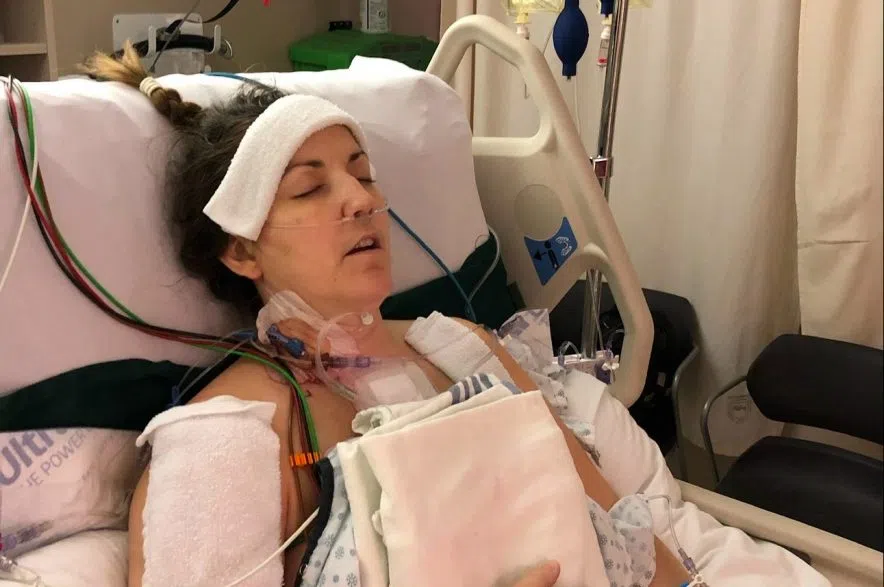
Rhinas underwent open-heart surgery in Saskatoon on December 17, 2018. She said that while recovery from the surgery was difficult, the procedure gave her a new lease on life. (Submitted)
She underwent open-heart surgery on December 17, 2018. The recovery process was grueling.
“I couldn’t hold my baby for eight weeks after the surgery,” Rhinas recalled, her voice filled with emotion at the memory. “I had a brand-new baby, and I couldn’t lift anything heavier than five pounds for eight weeks.”
Even in those dark moments of recovery, Rhinas dreamed of being there to watch her children grow up — cheering them on at soccer games, helping them with their homework, sharing family dinners, and being the steady presence they needed.
That dream has now become her reality.

Six years ago, Meredith Rhinas was lying in a hospital bed recovering from open-heart surgery. Today, she is a vibrant, thriving mother of four. (Submitted)
“My day-to-day life now is, it’s really great,” she shared. “I feel better than I ever have as far as the amount of energy I have, as far as the kind of activities I can do. I had such a renewed lease on life following the recovery of that surgery.”
Now, Rhinas is using her story to encourage other mothers to take charge of their health, trust their instincts, and speak up if something feels off.
“When you’re in the throes of motherhood, and your body is going through so many changes. If you’re having babies, if you’re experiencing any sort of postpartum issues, all of the things, it can really start to put you in a position where you’re almost triaging your life in a way,” she explained.
“Your children come first, your marriage comes second, or maybe work, and all of these other pieces feel like the more important thing to focus on. And we do sort of take our own health and put it on the back burner.”
That perspective is something Rhinas has carried into her own home, ensuring that her children understand her heart condition and the importance of being open about health.
“We’re very open. We talk about my condition. You know, I have scars that are very visible, and my children understand what happened and why it happened,” she shared.
“They ask questions about it. I’ve taught them the signs of stroke, because that is a potential reality for me as a complication of being on blood thinners, and we just treat it like it’s just a normal thing that our family lives with. We don’t wrap it up in fear. It’s just a reality of how we move through the world.”
As we mark Heart Month, Rhinas said she finds herself reflecting on the strength found in love — the love of a mother, and the love of life itself.
“You can’t help but view the world and life and the blessings in your life just a little bit differently when you have come so close to losing your life,” she said.
Now, as she watches her children chase each other through the house, laughter filling the air, Rhinas said she knows that every moment she gets to spend with them is a dream come true.

